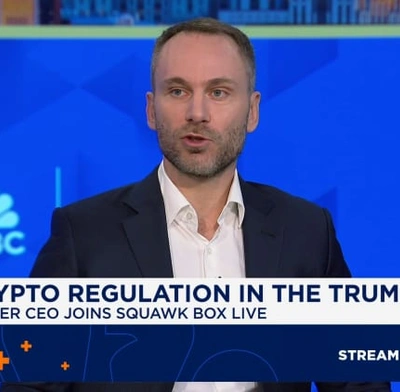Tether, the company behind the world's most widely used stablecoin, is exploring the creation of a local digital currency specifically for the American market as Congress advances new cryptocurrency regulations.

Tether, the company behind the world's most widely used stablecoin, is exploring the creation of a local digital currency specifically for the American market as Congress advances new cryptocurrency regulations.
Speaking on Bloomberg Television on 23 May, Tether CEO Paolo Ardoino indicated the company would adapt to requirements outlined in the proposed GENIUS Act if it becomes law this summer. The legislation will establish distinct compliance frameworks for domestic versus foreign stablecoin issuers, potentially prompting Tether to develop a separate US-focused product.
“For us, the main interest will remain outside the US, but also we’re open to create a domestic-issued stablecoin that will be competitive under the US economy,” Ardoino said. He emphasized that Tether’s USDT token has served as both a savings vehicle and payment method for more than 420 million users worldwide, many of them in emerging and developing countries.
Since launching in 2014, USDT has captured over 60% of the stablecoin market, a sector increasingly drawing attention from major Wall Street institutions. The pending congressional legislation would mandate that stablecoins be fully backed by liquid, traditional assets including cash and US Treasury securities.
Foreign stablecoin issuers would face additional scrutiny under the proposed rules, with US regulators required to assess whether overseas companies operate under comparable regulatory standards in their home jurisdictions.
“They need something stable in their lives”
Ardoino said he remains a firm believer in maintaining USDT’s availability for international users, including the estimated three billion people who have insufficient access to banking services.
“They have been left behind by the traditional financial system,” Ardoino said. “They need something stable in their lives and that is the US dollar in a digital form that is USDT.”
The CEO's media presence marks a notable shift from his previously low-profile approach. His public appearances began in March, coinciding with Tether's appointment of Simon McWilliams as chief financial officer during a broader management restructuring. Ardoino highlighted McWilliams' expertise in "contentious audits" during interviews with both Bloomberg and CNBC's Squawk Box Live last week.
Tether has historically resisted calls for comprehensive financial audits despite its significant market influence. The company relocated its headquarters from the British Virgin Islands to El Salvador earlier this year, where both Ardoino and Chief Operating Officer Claudia Lagorio have reportedly obtained citizenship and where other companies are attempting to develop a hub for crypto, supported by 43-year-old President Nayib Bukele.
Ardoino also used his TV appearances to highlight Tether’s “good relations” with US government and law enforcement authorities after the company became embroiled in fraud and terrorist financing cases involving USDT. In 2021, Tether paid $41 million in fines in the US to resolve allegations that it misrepresented the reserves backing USDT.
Under Ardoino’s leadership, Tether became the fifth-largest purchaser of US Treasuries in 2024. The company currently holds $125 billion in Treasury notes within its total liquid asset reserves of $172 billion. That’s more than the $152 billion of tokens in circulation among the public, Ardoino said.
“We are the stronghold for the US dollar hegemony” in emerging markets such as Africa and Latin America, he told CNBC.